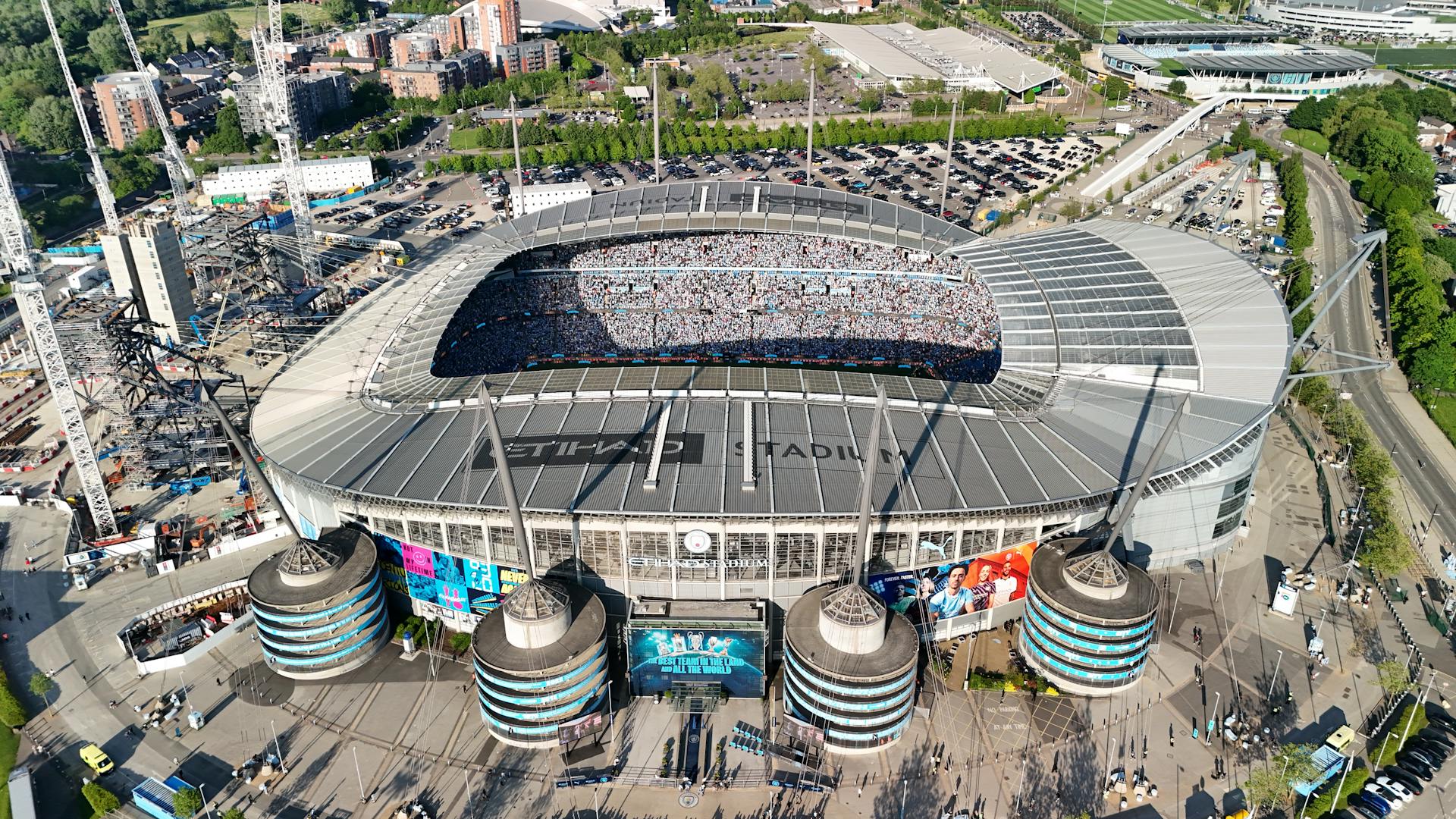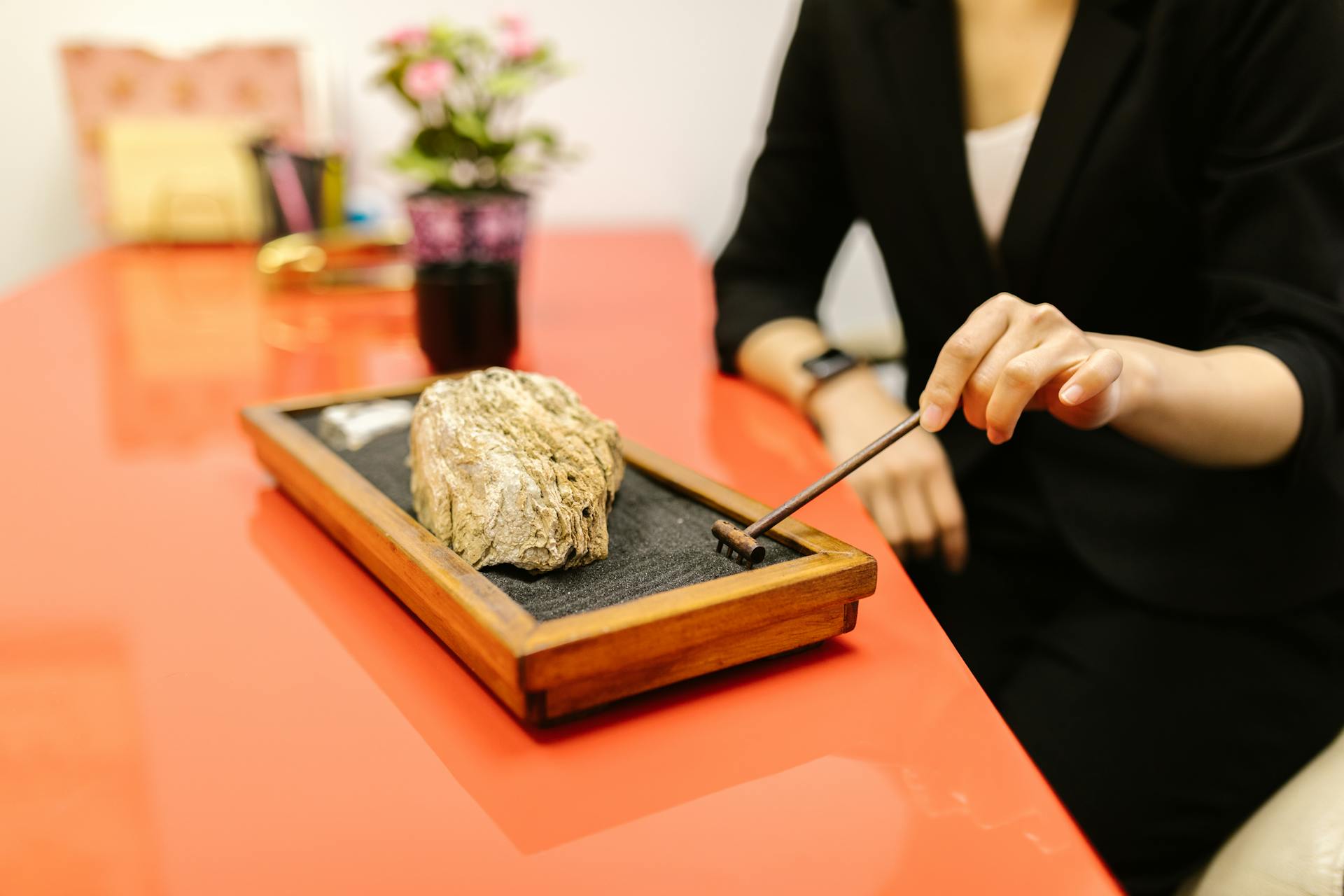
The Manchester Terrier is a wonderful breed to bring into your family, but it does require some special care.
They need regular exercise to stay happy and healthy, so be prepared to take them on daily walks and playtime.
Manchester Terriers are intelligent dogs that can learn quickly, but they can be strong-willed at times, so consistency and patience are key when training.
A balanced diet is essential for their overall health, and they do best with high-quality dog food that's rich in protein and fiber.
Care and Feeding
Manchester Terriers are relatively low-maintenance pets, requiring regular exercise every day to keep them happy and healthy.
A daily routine that includes at least 30 minutes of exercise, such as walks, runs, or playtime, is essential for this breed. Mental stimulation is also crucial, and puzzle toys like Buster Cubes can help keep their active minds occupied.
Their smooth, short coat requires minimal upkeep, with weekly brushing helping to keep shedding to a minimum. However, they can be prone to barking and digging behaviors, which can be managed with proper training and behavior modification.
Manchester Terriers also have a high prey drive, so it's essential to supervise them when they're outside to prevent them from chasing squirrels or other small animals.
Pet Care
Manchester Terriers are relatively low-maintenance pets, but they do require daily exercise to stay happy and healthy. Aim for at least 30 minutes of physical and mental stimulation every day, including walks, runs, and playtime.
Their smooth, short coats are easy to care for, but they do shed regularly. Brushing them once a week with a rubber curry brush or bristle brush can help keep shedding to a minimum.
Manchester Terriers can be prone to barking and digging behaviors, so it's essential to train them properly to manage these instincts. With patience and consistency, you can help your Manchester Terrier become a well-behaved companion.
They also have a high prey drive, so it's crucial to supervise them when they're outside to prevent them from chasing squirrels or other small animals. A fenced yard is a must to keep them safe and contained.
Overall, Manchester Terriers are clean, virtually odorless, and wonderfully adaptable, making them a great choice for apartment or house living. They'll even match their activity level to yours, so if you're a couch potato, your Manchester will likely lean that way too.
Feeding a Dog
Feeding a dog is a crucial aspect of their care. Your veterinarian can help you choose the best food for your dog to ensure they get all necessary nutrients.
Manchester Terriers need a high-quality and age-appropriate diet. Puppies should eat puppy food, and seniors can eat a diet specially formulated for older dogs.
Feed your Manchester Terrier twice a day, once in the morning and once in the evening. Manchester Terrier puppies can benefit from eating three smaller meals per day to prevent hypoglycemia.
The recommended daily amount is 1/4 to 1 cup of high-quality dry food a day, divided into two meals. However, the amount your adult dog eats depends on their size, age, build, metabolism, and activity level.
To ensure your Manchester Terrier stays in good shape, measure their food and feed them twice a day rather than leaving food out all the time. If you're unsure whether they're overweight, give them the eye test and the hands-on test.
Manchester Terriers are not picky eaters, but they can be prone to obesity if not fed properly. So, it's essential to monitor their food intake and adjust it according to their needs.
On a similar theme: National Boston Terrier Day
Health and Wellness
The Manchester Terrier is generally a healthy breed, but like all breeds, they're prone to certain health conditions. Not all Manchesters will get any or all of these diseases, but it's essential to be aware of them if you're considering this breed.
Glaucoma is a painful disease in which pressure in the eye becomes abnormally high, causing damage to the optic nerve and resulting in vision loss and blindness. Primary glaucoma, which is hereditary, and secondary glaucoma, which is a result of inflammation, a tumor, or injury, are the two types.Vision loss and eventually blindness will result, sometimes even with treatment (surgery or medication, depending on the case).
Von Willebrand's Disease is a blood disorder that affects the clotting process, causing symptoms such as nosebleeds, bleeding gums, and prolonged bleeding from surgery or heat cycles. This disorder is usually diagnosed between three and five years of age, and it can't be cured, but it can be managed with treatments.
The Manchester Terrier has a median lifespan of around 12 years 10 months, according to the Kennel Club's Purebred Health Survey.
Intriguing read: 100 Years Ago Original Boston Terrier
Nutritional Tips

Your dog's diet is crucial for their overall health and wellness. A well-balanced diet can make a huge difference in their energy levels and overall quality of life.
Manchester Terriers require a diet that meets their specific nutritional needs. This means feeding them an AAFCO-approved diet that provides all the necessary nutrients.
Never give your dog a supplement without your veterinarian's guidance. This includes fish oil or joint supplements, which may be recommended by your vet depending on your dog's health.
A healthy diet is just one part of your dog's overall health and wellness routine. Regular veterinary check-ups and a clean living environment are also essential for their well-being.
Health
The Manchester Terrier is a relatively healthy breed, but like all dogs, they can be prone to certain health issues. With a median lifespan of around 12 years 10 months, regular veterinary care and a healthy lifestyle can help ensure your Manchester Terrier lives a long and happy life.
Additional reading: Healthy Bull Terrier

One of the most common health issues in Manchester Terriers is glaucoma, a painful disease that can cause vision loss and blindness. Symptoms of glaucoma include red, teary, and squinty eyes, as well as a whitish cloudiness on the front of the eye.
Von Willebrand's disease is another health issue that can affect Manchester Terriers, causing symptoms such as nosebleeds, bleeding gums, and prolonged bleeding from surgery. This disorder is usually diagnosed between three and five years of age, and while it can't be cured, it can be managed with treatments such as cauterizing or suturing injuries, transfusions before surgery, and avoidance of specific medications.
Heat bumps may appear along your Manchester Terrier's back if they stay out in the sun too long. This is a relatively minor issue, but it's still important to keep an eye out for it.
To ensure your Manchester Terrier stays healthy, it's essential to work with a reputable breeder who has performed health clearances on both parents. These clearances can prove that a dog has been tested for and cleared of conditions such as hip dysplasia, elbow dysplasia, hypothyroidism, and von Willebrand's disease.
Here are some common health issues that can affect Manchester Terriers, along with their symptoms and potential treatments:
By being aware of these potential health issues and taking steps to prevent them, you can help your Manchester Terrier live a long and happy life.
Behavior
Manchester Terriers are known for their barking and digging behaviors, which can be managed with consistent training and exercise.
They may bark for attention or to alert you to something, so it's essential to train them to reduce excessive barking.
Their digging behavior stems from their ancestral prey drive, which can be minimized by exercising and mentally stimulating them.
To curb their prey drive, keep your Manchester on a leash or inside a fenced space, especially if you have smaller pets like hamsters or gerbils at home.
Manchester Terriers are quick and eager learners, responding well to positive reinforcement training.
They thrive on praise, treats, and play breaks as rewards for good behavior.
However, they may try to outwit you at times, so be patient and consistent with their training.
Socialization is key for Manchester Terriers, especially since they can be more reserved around new people.
Start socializing your puppy from the moment you bring them home to help them grow into confident and comfortable dogs in new situations.
Recommended read: Boston Terrier New England
Personality and Temperament
Manchester Terriers are deeply devoted to their family and can get along with children, especially when exposed to kids during puppyhood.
They're a social breed that thrives on interaction, so they're not well-suited for being alone all day. This means they need regular exercise and mental stimulation to prevent boredom and destructive behavior.
Manchester Terriers are intelligent and perceptive, so consistency is key when training them. They can develop a "Napoleon Complex" if they're not firmly taught who the real boss is.
They're naturally curious and love to explore their surroundings, which can sometimes get them into trouble. Regular exercise and physical activity can help burn off excess energy and keep them happy and healthy.
Manchester Terriers are not generally aggressive, but they can be wary of strangers and may bark at people they don't know. With proper socialization from puppyhood, they can learn to be okay around new people.
They're a loyal and loving breed that makes a great companion, but they do require regular attention and interaction to thrive. If you're away from home for long periods, consider doggie daycare or a pet sitter to keep them company.
Worth a look: When to Mate Female Dog
Grooming and Maintenance
Manchester Terriers have a relatively low-maintenance coat that requires minimal upkeep. They shed regularly but not excessively, making them a great choice for those who don't want to deal with a lot of dog hair.
Brushing your Manchester Terrier once a week with a rubber curry brush or bristle brush will help keep shedding to a minimum and keep their coat shiny. They do blow their coat in the spring and fall, so you'll need to brush them every day during those seasons to keep up with all that hair.
They only need an occasional bath, about every two to three months, unless they get dirty. Daily brushing of their teeth is also essential to avoid a build-up of bacteria, decay, or cavities.
Breed Maintenance
Manchester Terriers are relatively easy to maintain, thanks to their short, smooth coat that sheds minimally. They need regular brushing to remove dead hair and prevent matting.
Brushing is essential for Manchester Terriers, especially during shedding season. They blow their coat twice a year, shedding heavily in the spring and fall. Regular brushing keeps shedding under control, and it's also a great opportunity to check for any skin issues or infections.
To keep your Manchester Terrier's coat in top condition, brush them once a week with a rubber or bristle brush. They also need occasional baths, about every two to three months, unless they get dirty. Be sure to use a shampoo made for dogs to avoid drying out their skin and coat.
In addition to coat care, Manchester Terriers need regular nail trimming. Trim their nails once or twice a month if they don't wear them down naturally. You can hear their nails clicking on the floor if they're too long, and cutting them too far can cause bleeding.
Weekly ear checks are also crucial for Manchester Terriers. Look for debris, redness, or swelling, and clean their ears with a cotton ball and ear cleaner if necessary. It's also essential to check their eyes, nose, mouth, and feet for any signs of infection or skin issues.
To keep your Manchester Terrier's teeth clean, brush them daily. This will help prevent tartar buildup and gum disease. Schedule an annual professional teeth cleaning with your vet to keep their teeth in top condition.
Here's a summary of the breed maintenance tasks:
- Brush coat once a week
- Bathe every 2-3 months
- Trim nails once or twice a month
- Check ears weekly
- Check eyes, nose, mouth, and feet weekly
- Brush teeth daily
- Schedule annual professional teeth cleaning
Size
The Manchester Terrier's size is a notable aspect of their overall health and well-being. The Toy Manchester Terrier weighs less than 12 pounds, while the Standard Manchester Terrier weighs over 12 pounds and under 22 pounds.
Their compact, muscular bodies are a testament to their agility and power. Overall, Manchesters are slightly longer than they are tall.
Featured Images: pexels.com

